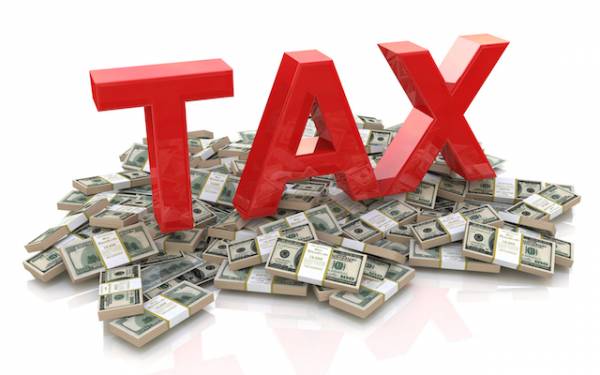
- Does Michigan Tax Casino Winnings 2019
- Does Michigan Tax Casino Winnings Winning
- Does Michigan Tax Casino Winnings Payout
- Does Michigan Tax Casino Winnings Payouts
Yes, the tax deadline for the IRS (and federal estimated payments for the first two quarters) is July 15th. However, not all states conformed to this–especially for estimated payments. The following states all have first quarter estimated payments for individuals that are due tomorrow, April 15th:
Do I have to file out of state taxes on gambling winnings? Generally, yes, but it depends on the state. Every state has its own rules regarding nonresident returns. For example, nonresidents with more than $33 in Pennsylvania-sourced income must file a return, while nonresidents with less than $600 in Missouri income don't have to file.
Does Michigan Tax Casino Winnings 2019
- Arkansas
- District of Columbia
- Hawaii (due April 20th)
- Illinois
- Iowa (due April 30th)
- Kentucky
- Michigan
- Minnesota
- New Hampshire
- New Jersey
- North Carolina
- Oregon
So if you need to make estimated payments for 2020 for one of these states, do so. If you are mailing your payment, use certified mail (but not return receipt requested–there’s a possiblity no one is there to pick up the mail).
Does Michigan Tax Casino Winnings Winning
- Arizona features a relatively low 4.54% tax rate on gambling wins. The Hoosier State features several casinos, multiple sportsbooks, and regulated online betting. Indiana taxes winnings at a 3.23% rate. Michigan offers 26 casinos, including three commercial venues in Detroit and 23 tribal establishments throughout the state.
- Without using the session method, I potentially must pay federal tax on $2,000, unless I itemize. I may be able to use $2,000 as an itemized deduction if I am eligible to file Schedule A. Either way, I’m still paying tax on winnings even though I walked away with less money than I started with. I would also have to pay Michigan tax on $2,000.
Gambling In America
If you've ever won a jackpot in Las Vegas, you probably know that your excitement diminishes at least a little when the casino throws a W-2G tax form in your face. In fact, if you don’t provide your social security number, the casino will automatically withhold up to 30% of your winnings. The same goes for lottery and horse racing wins above $1200. Yet when playing online, paying taxes isn’t always so black and white.
Americans who play at US-based online casinos will usually have to deal with withholding taxes just like in Las Vegas. Yet that only represents a small fraction of your entertainment options. When playing at licensed offshore online casinos or poker rooms, American players usually won’t hear the words taxes mentioned at all.
Sadly, it is never safe to assume that your winnings are ultimately tax-free. It is true that Americans who play at internet gambling sites outside of the USA won’t be subject to withholding taxes when withdrawing their winnings. Yet you may be required to report these gains when you file your taxes in April. The greatest determinant is the number, size, and frequency of your wins. The actual threshold varies from state to state and whether or not you are an amateur or professional. For more information on reportable gambling winnings visit the IRS guide: https://www.irs.gov/instructions/iw2g/ar02.html
Professional Gamblers
Whether or not you qualify as a professional gambler doesn’t solely depend on your performance at the tables. The main litmus test is the expectation and probability of profit in the eyes of the Internal Revenue Service. Your success and whether or not you have a regular job on top of gambling may also be factors.

With even amateur gamblers having to deal with taxes, professional gambling does have benefits. You can actually deduct your wins from your losses when your treat your gameplay as a business. No matter what your current status is and how often you play, it's best to keep tabs on your performance to develop strategies, stick to a budget, and simply know where you stand. You can find this tip sheet courtesy of the IRS: https://www.irs.gov/taxtopics/tc419.html
Whether or not the IRS can actually track your winnings is another matter entirely. Yet you should be aware of your obligations. With a huge budget deficit and ballooning debt, the federal government is looking to fill their financial holes any way they can. Between the NSA and modern forensic accounting practices, covering your digital tracks is more difficult than it used to be.
Tax Obligations Outside Of The USA
The United States is a bit of an outlier when it comes to taxing gambling winnings. In the United Kingdom, the government taxes the gross profits of casino operators rather than players. Canadians can play the lottery, live casinos, poker and online games without paying taxes unless they are a professional. Likewise, Australians and New Zealanders can also gamble tax-free. To put things in perspective, Americans do pay some of the lowest personal income taxes in the first world. Things tend to even out in the end.
Like anything else, interpreting the rules is always a matter of debate. Here's an interesting tax perspective for Canadians: http://business.financialpost.com/personal-finance/tax-expert-a-gamble-over-poker-winnings
Things To Consider
Does Michigan Tax Casino Winnings Payout
Keep in mind that Americans have to deal with both Federal and State taxes on most forms of income. Always keep basic records no matter how often you play or win. This will make things easier during tax season.
Accountants Have The Answers
Does Michigan Tax Casino Winnings Payouts
No matter where you live, it's always best to discuss your personal situation with a licensed tax professional in your area. You can usually get a short consultation for free with complete confidentiality. It's the best way to play by the rules while minimizing your tax burden.